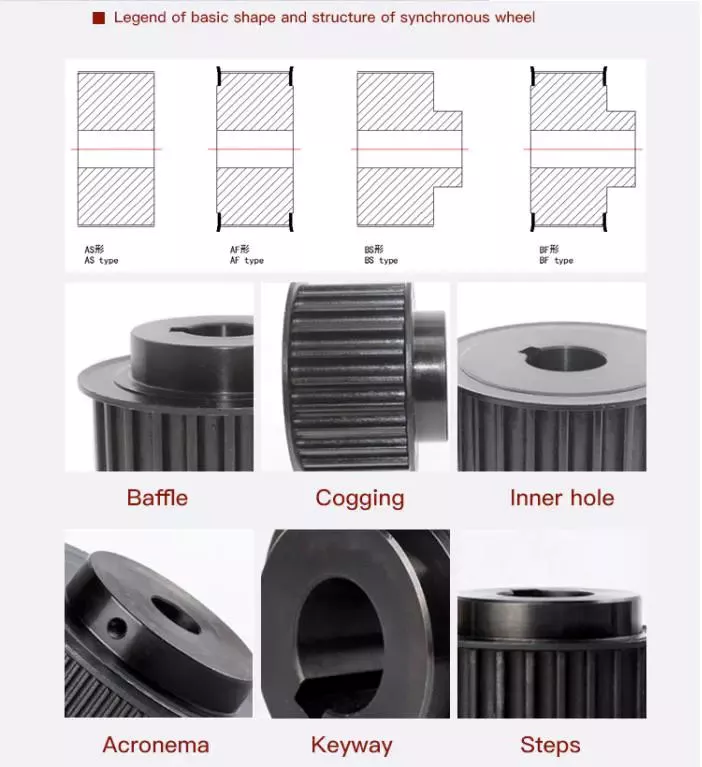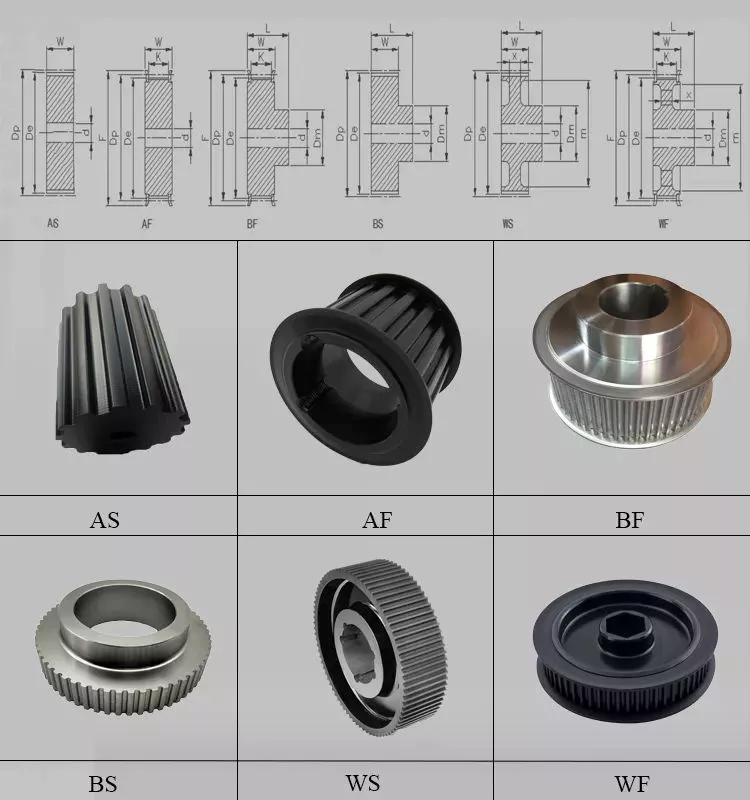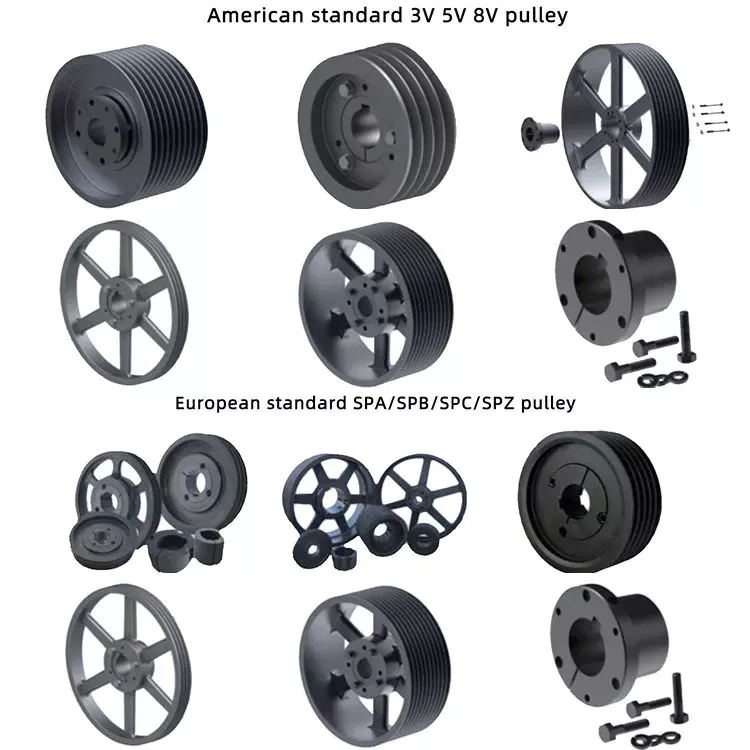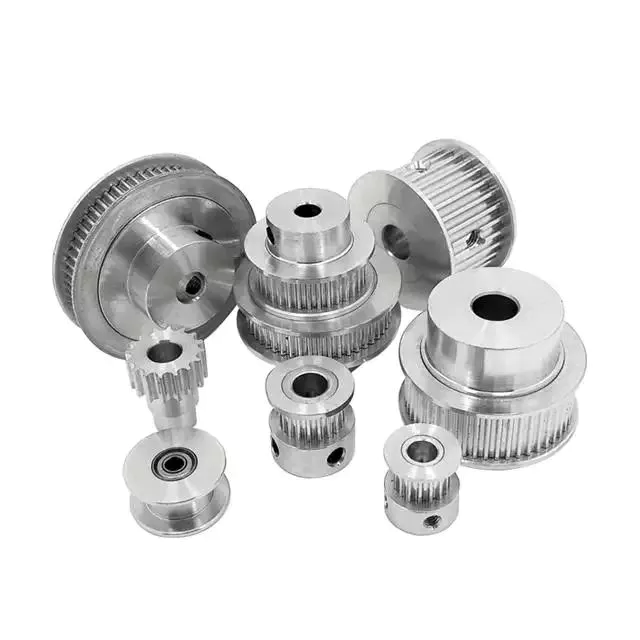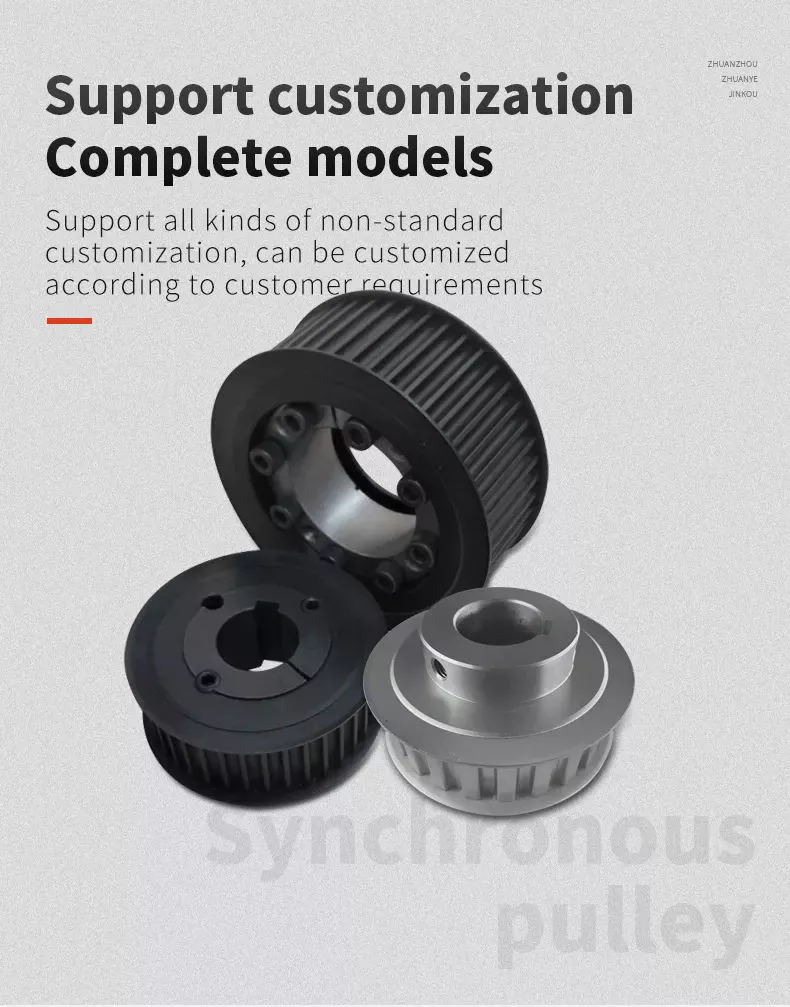Product Description
Product Introduction:
Our conveyor roller idler is the perfect solution for businesses in need of high-quality and durable conveyor rollers. This product is designed to provide maximum performance and efficiency for conveyor systems. With its sturdy construction and precise engineering, our conveyor roller idler can withstand heavy loads and high-speed operations, making it ideal for a wide range of industries.
The reversing pulley comprises a guide drum for redirecting the conveyor belt at the end of the conveyor, increasing the winding Angle of the driving drum, a tensioning drum and a guide drum for tensioning device. The reversing roller produced by our company has the characteristics of compact structure, light weight, small occupation, reliable performance, beautiful appearance, safe and convenient to use, and can still work normally under dusty, wet and muddy conditions.
Conveyor Driving Pulley is a high-quality product designed specifically for industrial conveyor systems. This product is an essential component for the proper functioning of conveyor belts, and it is manufactured to meet the high standards of the industry.
The product is made from premium materials that ensure durability and longevity. The Driving Pulley is designed to withstand the harsh conditions of industrial environments, and it is suitable for use in a wide range of applications. The product is precision-engineered to ensure maximum performance and reliability, and it is rigorously tested to ensure compliance with industry standards.
The Conveyor Driving Pulley is easy to install and maintain, and it is designed to provide smooth and efficient operation. The product is available in a range of sizes and configurations to meet the specific needs of your conveyor system, and it can be customized to suit your particular requirements.
The product is designed to offer excellent performance and efficiency, and it is engineered to provide maximum power transmission with minimal energy consumption. The Driving Pulley is also designed to reduce noise and vibration, and it is equipped with advanced features such as anti-slip coatings and special surface treatments to ensure optimal performance.
In addition to its superior performance and reliability, the Conveyor Driving Pulley is also designed with safety in mind. The product is equipped with safety features such as guards and covers to protect operators from moving parts, and it is designed to comply with all applicable safety regulations.
Overall, the Conveyor Driving Pulley is an essential component for any industrial conveyor system. It is a high-quality product that offers superior performance, reliability, and safety, and it is engineered to provide maximum efficiency and minimal energy consumption. Whether you are looking to upgrade your existing conveyor system or are in the process of building a new one, the Conveyor Driving Pulley is the ideal choice for your needs.
| Model NO. | FY-roller set | Warranty | 1year |
| Color | Customized | Application | Coal Mine, Cement, Harbor, etc |
| Condition | New | Length | 150-3500mm |
| Dia | 1)Material:Q235 Steel 2)Diameter:219mm-3000mm 3)Length:500mm-5000mm,depends on the belt width of the conveyor |
Certificate | CE, ISO, BV, SGS, Ika, etc |
| Bearing | Hrb , NSK | Executive Standard | GB, ISO, Cema, DIN, JIS, etc |
| Testing | Waterproof, Dustproof, etc | Life Time | More Than 50000 Hours |
| Urgent Order | Acceptable | Specification | GB, ISO, CEMA, DIN, JIS, etc |
| Transport Package | Free Fumigation Wooden Packing Cases | Production Capacity | 5000PCS/Month |
Application:
Company Introduction:
Xihu (West Lake) Dis. CHINAMFG transportation Machinery Manufacturing Co., Ltd. is located in ZheJiang (Xihu (West Lake) Dis.) rubber conveyor belt industrial zone, near by the Capital ZheJiang city, The location is superior and the transportation is convenient. Our company has always attached importance to personnel training and investment in science and technology, relying on advanced production and testing, strong capital and technical strength, perfect after-sales system, so that the products are exported to all parts of the world.
Our company is the professional manufacturer of producing all kinds of conveyor belt, roller, trestle, roller, crusher and other machines, with strong technical capacity, advanced and complete equipment. Our products are widely used in: iron and steel, metallurgy, cement, power generation, fertilizer, grain depot, port and other industries.
Our company adheres to the basic principle of serving customers: “quality, technology, after-sales service”, and constantly strengthens the comprehensive competitiveness of the company among its peers, seeks development in competition, and seeks opportunities in challenges. CHINAMFG will provide you with supieror quality products and after-sales service. We are willing to go hand in hand with you honestly,to create brilliance together!
Transportation
FAQ:
Q1. Are you a manufacturer?
A. Yes, We are. We have been producing and selling conveyor system parts for years.
Q2. Can you produce conveyor system machines with customer’s own brand?
A. Yes, we can produce according to customer’s requirements.
Q3. What about the lead time of conveyor products?
A. 1) 5~7 days for sample
2) 15~30 days according to order quantity.
Q4. How long is the warranty period of conveyor parts ?
A. 1) 1~2 years for general working conditions.
2) 1 years for bad working conditions.
Q5. How about payment terms ?
A. 50% T/T in advance, the balanced should be paid before shipping .
Q6. How do you ensure product quality of conveyor parts?
A. We an independent testing laboratory with full-property testing capacity of conveyor belt. We can test various materials, rubber, fabric, semi-finished product and finished product.
Q7. How about the price of your conveyor system parts machines?
- Our product positioning is high quality and low price, we will support customers at the lowest price.
/* January 22, 2571 19:08:37 */!function(){function s(e,r){var a,o={};try{e&&e.split(“,”).forEach(function(e,t){e&&(a=e.match(/(.*?):(.*)$/))&&1
| Material: | Stainless Steel |
|---|---|
| Surface Treatment: | Customized |
| Motor Type: | Frequency Control Motor |
| Installation: | Turning |
| Manufacturer: | Yes |
| Function: | Supporting, Damping |
| Customization: |
Available
| Customized Request |
|---|
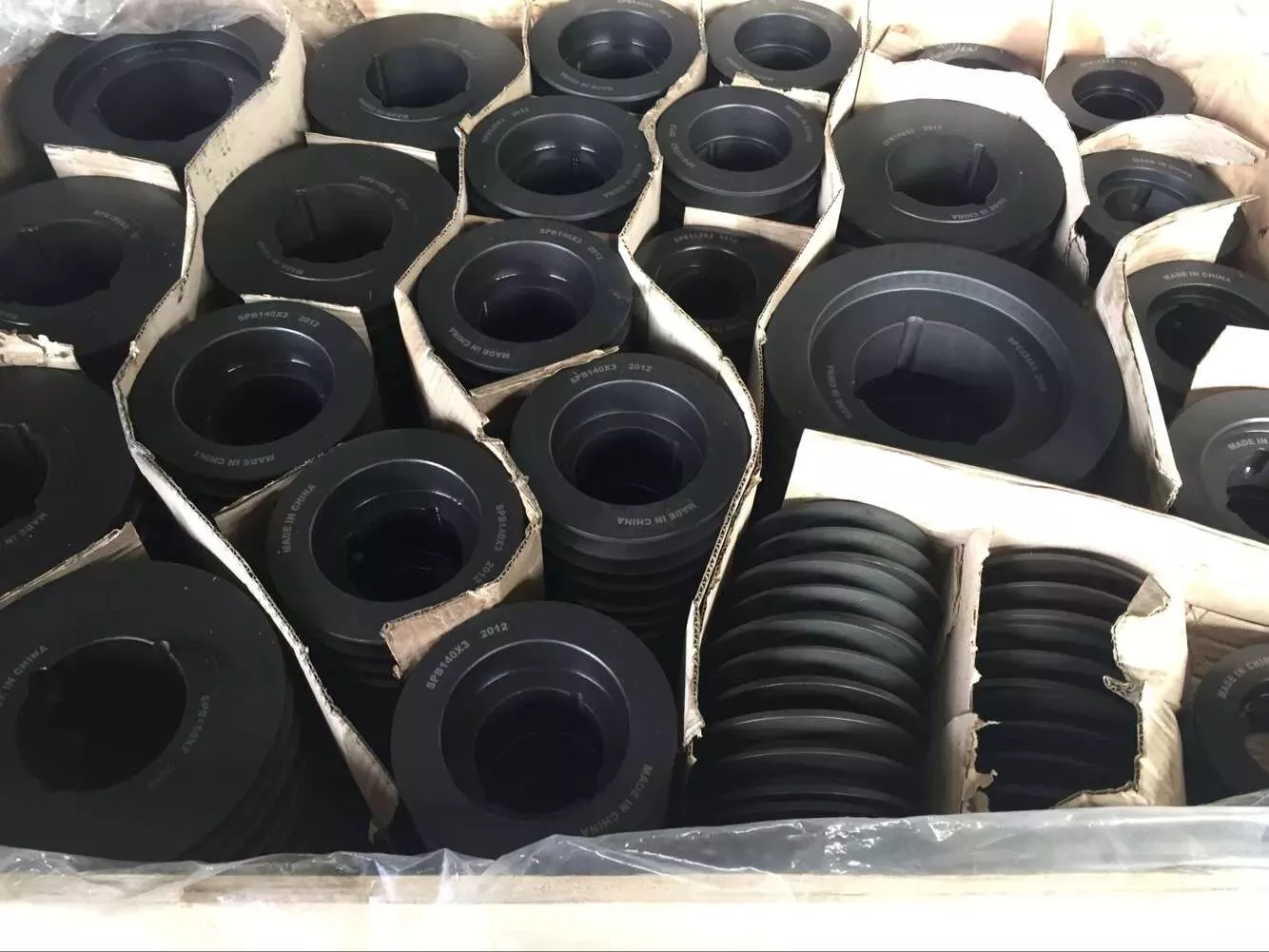
How do pulleys function in various types of vehicles and machinery?
Pulleys play crucial roles in numerous types of vehicles and machinery, enabling the transmission of power, control of mechanical systems, and efficient operation. Here’s how pulleys function in various applications:
1. Automotive Engines: In vehicles, pulleys are commonly used in the engine’s accessory drive system. The crankshaft pulley, also known as the harmonic balancer, is connected to the engine’s crankshaft and drives various accessories such as the alternator, power steering pump, and air conditioning compressor. The pulleys enable the transfer of rotational power from the engine to these accessories, allowing them to perform their respective functions.
2. Belt-Driven Systems: Pulleys are extensively used in belt-driven systems across various machinery and equipment. These systems utilize belts, such as V-belts or timing belts, which wrap around pulleys to transfer power. Examples include conveyor systems, industrial machinery, agricultural equipment, and HVAC systems. The pulleys provide the necessary grip and tension to ensure efficient power transmission and drive system operation.
3. Cranes and Hoists: Pulleys are integral components of cranes and hoists, enabling the lifting and movement of heavy loads. Multiple pulleys, often arranged in a block and tackle configuration, are used to create mechanical advantage, reducing the effort required to lift the load. By distributing the load’s weight over multiple strands of rope or cable, pulleys allow for controlled lifting and precise positioning of objects.
4. Construction Equipment: Pulleys are found in various types of construction machinery. For example, in excavators and cranes, pulleys are used in the wire rope systems for lifting and lowering the boom, bucket, or other attachments. Pulleys help in managing the forces involved in these operations, providing smooth and controlled movement.
5. Elevators: Pulleys are essential components in elevator systems. Elevator cars are suspended by steel cables that run over pulleys. These pulleys are connected to an electric motor through a system of gears and sheaves. As the motor rotates the pulleys, the elevator car moves up or down. Pulleys in elevator systems help in efficiently transferring power and maintaining the stability and safety of vertical transportation.
6. Exercise Equipment: Pulleys are widely used in exercise machines and gym equipment to provide resistance and enable adjustable resistance levels. By incorporating pulley systems with different configurations and cable arrangements, exercise equipment can offer a variety of exercises targeting specific muscle groups.
7. Marine Applications: Pulleys are utilized in various marine applications, such as sailboats and winches. Pulleys help in controlling the movement and tension of ropes and cables, enabling sail adjustments, mast raising and lowering, and other rigging operations.
8. Garage Doors: Pulleys are employed in garage door mechanisms to facilitate the smooth opening and closing of the doors. They are used in conjunction with cables or belts, allowing for the transfer of force from the door opener to the door itself.
These examples demonstrate the versatility and importance of pulleys in a wide range of vehicles and machinery. By utilizing pulleys, these systems can achieve efficient power transmission, mechanical advantage, controlled movement, and improved functionality.
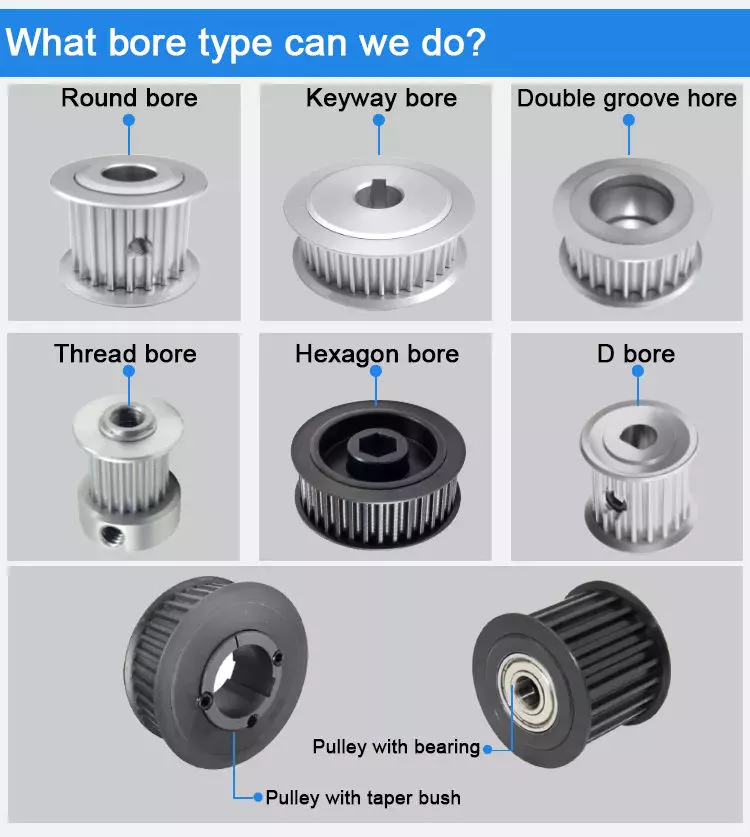
How do pulleys contribute to the functioning of bicycles and motorcycles?
Pulleys play important roles in the functioning of both bicycles and motorcycles, aiding in power transmission, speed control, and overall mechanical efficiency. Here’s how pulleys contribute to the operation of these vehicles:
1. Bicycles:
– Derailleur System: In most modern bicycles, pulleys are used in the derailleur system. The derailleur is responsible for shifting the bicycle chain between different gears on the front and rear sprockets. Pulleys, often referred to as jockey wheels, are positioned in the derailleur to guide and tension the chain as it moves between gears. They ensure smooth and precise shifting, allowing the rider to adapt to various terrains and maintain an optimal pedaling cadence.
– Belt Drive Systems: Some bicycles use a belt drive instead of a traditional chain drive. Belt drives employ a pulley system that consists of a front pulley attached to the pedal crank and a rear pulley attached to the rear wheel hub. The belt is wrapped around these pulleys, transferring power from the rider’s pedaling motion to propel the bicycle forward. Pulleys in belt drive systems enable efficient power transfer, reduce maintenance needs, and provide a quieter and cleaner alternative to chain drives.
2. Motorcycles:
– Clutch System: Pulleys, known as clutch pulleys, are utilized in motorcycle clutch systems. The clutch connects the engine to the transmission and allows the rider to engage or disengage power transmission to the rear wheel. When the clutch lever is pulled, the clutch pulley separates the engine’s rotational motion from the transmission, disengaging power transfer. Releasing the clutch lever brings the pulley back into contact, engaging power transmission and enabling the motorcycle to move.
– Variable Transmission Systems: Some motorcycles employ pulleys in variable transmission systems, such as continuously variable transmissions (CVT). CVTs use a pair of pulleys connected by a belt or chain. By changing the diameter of the pulleys, the CVT adjusts the gear ratio continuously, providing seamless and efficient power delivery across a wide range of speeds. Pulleys in variable transmission systems contribute to smooth acceleration, improved fuel efficiency, and enhanced riding comfort.
– Drive Belt Systems: Pulleys are also utilized in motorcycles equipped with belt drive systems. Similar to bicycles, these systems consist of a front pulley connected to the engine’s crankshaft and a rear pulley connected to the rear wheel. The belt runs around these pulleys, transferring power from the engine to the rear wheel. Belt drive systems offer advantages such as reduced maintenance, quieter operation, and smoother power delivery compared to traditional chain drives.
Overall, pulleys are integral components in bicycles and motorcycles, contributing to smooth gear shifting, efficient power transmission, and improved overall performance. Whether in derailleur systems, belt drive systems, clutch systems, or variable transmission systems, pulleys play a vital role in enhancing the functionality and ride experience of these vehicles.
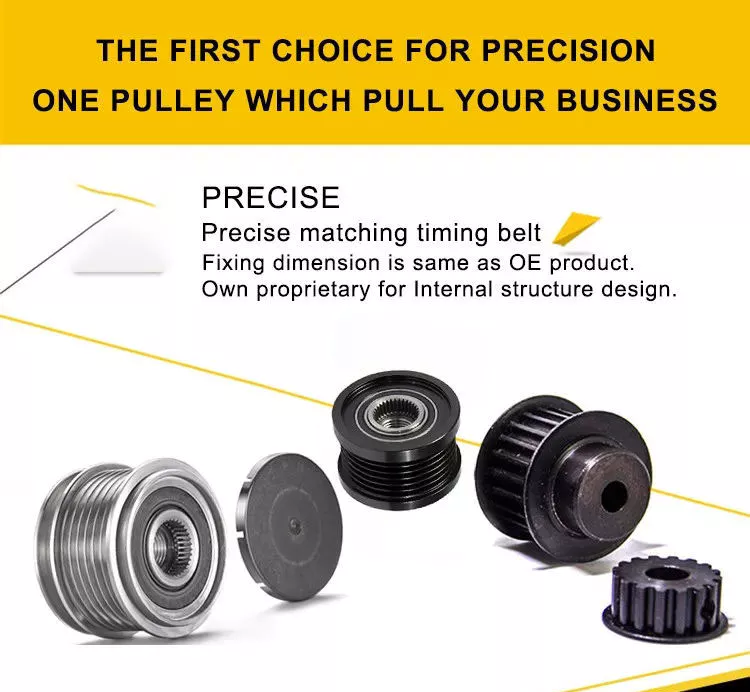
What is a pulley, and how does it function in mechanical systems?
A pulley is a simple machine consisting of a grooved wheel and a rope, cable, or belt that runs along the groove. It is used to transmit force and motion in mechanical systems. Here’s a detailed explanation of how a pulley functions:
1. Mechanical Advantage: The primary function of a pulley is to provide mechanical advantage. By changing the direction of the force applied and distributing it over multiple segments of the rope or belt, a pulley system allows for easier lifting or moving of heavy loads. The mechanical advantage gained depends on the number of pulleys used in the system.
2. Force Transmission: When a force is applied to one end of the rope or belt, it creates tension that causes the pulley to rotate. As the pulley turns, the force is transmitted to the load attached to the other end of the rope or belt. This force transmission allows for the movement and manipulation of objects in mechanical systems.
3. Directional Change: One of the key functions of a pulley is to change the direction of the applied force. By redirecting the force along a different path, a pulley system enables the operator to exert force from a more convenient or advantageous position. This directional change is particularly useful in situations where the force needs to be applied vertically, horizontally, or at an angle.
4. Speed and Torque Conversion: In addition to changing the direction of force, pulleys can also be used to convert speed and torque in mechanical systems. By varying the size of the pulleys or using pulleys of different diameters, the rotational speed and torque can be adjusted according to the requirements of the system. This speed and torque conversion allows for the optimization of power transmission and the matching of different rotational speeds between input and output components.
5. Multiple Pulley Systems: Pulleys can be combined in systems to achieve increased mechanical advantage or to create complex motion patterns. In systems with multiple pulleys, such as block and tackle arrangements, the load is distributed over several segments of rope or belt, further reducing the effort required to lift heavy objects. These systems are often used in cranes, elevators, and other applications where heavy lifting is necessary.
6. Fixed and Movable Pulleys: Pulleys can be categorized as fixed or movable. A fixed pulley is attached to a stationary structure, and its main function is to change the direction of force. A movable pulley, on the other hand, is attached to the load being moved and moves with it. Movable pulleys provide mechanical advantage by reducing the effort required to lift the load.
7. Belt and Rope Pulleys: Pulleys can have different designs depending on the application. Belt pulleys typically have a grooved surface to grip and guide belts, while rope pulleys have a smooth surface to minimize friction and prevent rope wear. The choice between belt and rope pulleys depends on factors such as load requirements, operational environment, and desired efficiency.
Overall, a pulley is a versatile mechanical device that functions as a force multiplier, directional changer, and speed/torque converter in mechanical systems. Its ability to provide mechanical advantage, change force direction, and facilitate complex motion patterns makes it an essential component in various applications, including lifting, transportation, and power transmission.


editor by CX
2024-04-17
